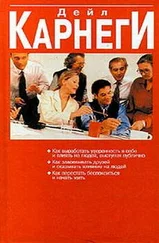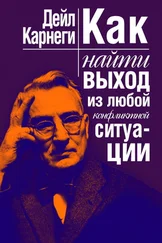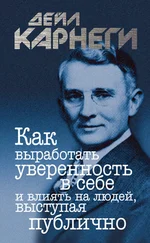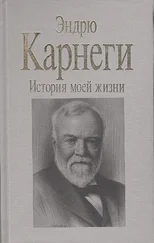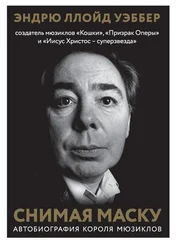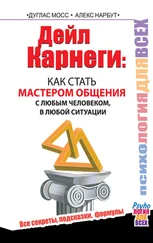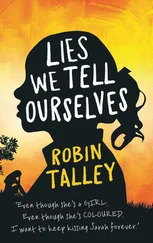Эндрю Карнеги - Autobiography of Andrew Carnegie
Здесь есть возможность читать онлайн «Эндрю Карнеги - Autobiography of Andrew Carnegie» — ознакомительный отрывок электронной книги совершенно бесплатно, а после прочтения отрывка купить полную версию. В некоторых случаях можно слушать аудио, скачать через торрент в формате fb2 и присутствует краткое содержание. Жанр: Биографии и Мемуары, foreign_antique, на английском языке. Описание произведения, (предисловие) а так же отзывы посетителей доступны на портале библиотеки ЛибКат.
- Название:Autobiography of Andrew Carnegie
- Автор:
- Жанр:
- Год:неизвестен
- ISBN:нет данных
- Рейтинг книги:3 / 5. Голосов: 1
-
Избранное:Добавить в избранное
- Отзывы:
-
Ваша оценка:
- 60
- 1
- 2
- 3
- 4
- 5
Autobiography of Andrew Carnegie: краткое содержание, описание и аннотация
Предлагаем к чтению аннотацию, описание, краткое содержание или предисловие (зависит от того, что написал сам автор книги «Autobiography of Andrew Carnegie»). Если вы не нашли необходимую информацию о книге — напишите в комментариях, мы постараемся отыскать её.
Autobiography of Andrew Carnegie — читать онлайн ознакомительный отрывок
Ниже представлен текст книги, разбитый по страницам. Система сохранения места последней прочитанной страницы, позволяет с удобством читать онлайн бесплатно книгу «Autobiography of Andrew Carnegie», без необходимости каждый раз заново искать на чём Вы остановились. Поставьте закладку, и сможете в любой момент перейти на страницу, на которой закончили чтение.
Интервал:
Закладка:
"What good could it do me to ride in a carriage gin I could na be seen by the folk in Strathbogie?" Father and mother would not only be seen in Pittsburgh, but should visit Dunfermline, their old home, in style.
On Sunday morning with father, mother, and Tom at breakfast, I produced the extra two dollars and a quarter. The surprise was great and it took some moments for them to grasp the situation, but it soon dawned upon them. Then father's glance of loving pride and mother's blazing eye soon wet with tears, told their feeling. It was their boy's first triumph and proof positive that he was worthy of promotion. No subsequent success, or recognition of any kind, ever thrilled me as this did. I cannot even imagine one that could. Here was heaven upon earth. My whole world was moved to tears of joy.
Having to sweep out the operating-room in the mornings, the boys had an opportunity of practicing upon the telegraph instruments before the operators arrived. This was a new chance. I soon began to play with the key and to talk with the boys who were at the other stations who had like purposes to my own. Whenever one learns to do anything he has never to wait long for an opportunity of putting his knowledge to use.
One morning I heard the Pittsburgh call given with vigor. It seemed to me I could divine that some one wished greatly to communicate. I ventured to answer, and let the slip run. It was Philadelphia that wanted to send "a death message" to Pittsburgh immediately. Could I take it? I replied that I would try if they would send slowly. I succeeded in getting the message and ran out with it. I waited anxiously for Mr. Brooks to come in, and told him what I had dared to do. Fortunately, he appreciated it and complimented me, instead of scolding me for my temerity; yet dismissing me with the admonition to be very careful and not to make mistakes. It was not long before I was called sometimes to watch the instrument, while the operator wished to be absent, and in this way I learned the art of telegraphy.
We were blessed at this time with a rather indolent operator, who was only too glad to have me do his work. It was then the practice for us to receive the messages on a running slip of paper, from which the operator read to a copyist, but rumors had reached us that a man in the West had learned to read by sound and could really take a message by ear. This led me to practice the new method. One of the operators in the office, Mr. Maclean, became expert at it, and encouraged me by his success. I was surprised at the ease with which I learned the new language. One day, desiring to take a message in the absence of the operator, the old gentleman who acted as copyist resented my presumption and refused to "copy" for a messenger boy. I shut off the paper slip, took pencil and paper and began taking the message by ear. I shall never forget his surprise. He ordered me to give him back his pencil and pad, and after that there was never any difficulty between dear old Courtney Hughes and myself. He was my devoted friend and copyist.
Soon after this incident Joseph Taylor, the operator at Greensburg, thirty miles from Pittsburgh, wishing to be absent for two weeks, asked Mr. Brooks if he could not send some one to take his place. Mr. Brooks called me and asked whether I thought I could do the work. I replied at once in the affirmative.
"Well," he said, "we will send you out there for a trial."
I went out in the mail stage and had a most delightful trip. Mr. David Bruce, a well-known solicitor of Scottish ancestry, and his sister happened to be passengers. It was my first excursion, and my first glimpse of the country. The hotel at Greensburg was the first public house in which I had ever taken a meal. I thought the food wonderfully fine.
This was in 1852. Deep cuts and embankments near Greensburg were then being made for the Pennsylvania Railroad, and I often walked out in the early morning to see the work going forward, little dreaming that I was so soon to enter the service of that great corporation. This was the first responsible position I had occupied in the telegraph service, and I was so anxious to be at hand in case I should be needed, that one night very late I sat in the office during a storm, not wishing to cut off the connection. I ventured too near the key and for my boldness was knocked off my stool. A flash of lightning very nearly ended my career. After that I was noted in the office for caution during lightning storms. I succeeded in doing the small business at Greensburg to the satisfaction of my superiors, and returned to Pittsburgh surrounded with something like a halo, so far as the other boys were concerned. Promotion soon came. A new operator was wanted and Mr. Brooks telegraphed to my afterward dear friend James D. Reid, then general superintendent of the line, another fine specimen of the Scotsman, and took upon himself to recommend me as an assistant operator. The telegram from Louisville in reply stated that Mr. Reid highly approved of promoting "Andy," provided Mr. Brooks considered him competent. The result was that I began as a telegraph operator at the tremendous salary of twenty-five dollars per month, which I thought a fortune. To Mr. Brooks and Mr. Reid I owe my promotion from the messenger's station to the operating-room. 18 18 "I liked the boy's looks, and it was very easy to see that though he was little he was full of spirit. He had not been with me a month when he began to ask whether I would teach him to telegraph. I began to instruct him and found him an apt pupil." (James D. Reid, The Telegraph in America , New York, 1879.) Reid was born near Dunfermline and forty years afterwards Mr. Carnegie was able to secure for him the appointment of United States Consul at Dunfermline.
I was then in my seventeenth year and had served my apprenticeship. I was now performing a man's part, no longer a boy's—earning a dollar every working day.
The operating-room of a telegraph office is an excellent school for a young man. He there has to do with pencil and paper, with composition and invention. And there my slight knowledge of British and European affairs soon stood me in good stead. Knowledge is sure to prove useful in one way or another. It always tells. The foreign news was then received by wire from Cape Race, and the taking of successive "steamer news" was one of the most notable of our duties. I liked this better than any other branch of the work, and it was soon tacitly assigned to me.
The lines in those days worked poorly, and during a storm much had to be guessed at. My guessing powers were said to be phenomenal, and it was my favorite diversion to fill up gaps instead of interrupting the sender and spending minutes over a lost word or two. This was not a dangerous practice in regard to foreign news, for if any undue liberties were taken by the bold operator, they were not of a character likely to bring him into serious trouble. My knowledge of foreign affairs became somewhat extensive, especially regarding the affairs of Britain, and my guesses were quite safe, if I got the first letter or two right.
The Pittsburgh newspapers had each been in the habit of sending a reporter to the office to transcribe the press dispatches. Later on one man was appointed for all the papers and he suggested that multiple copies could readily be made of the news as received, and it was arranged that I should make five copies of all press dispatches for him as extra work for which he was to pay me a dollar per week. This, my first work for the press, yielded very modest remuneration, to be sure; but it made my salary thirty dollars per month, and every dollar counted in those days. The family was gradually gaining ground; already future millionairedom seemed dawning.
Another step which exercised a decided influence over me was joining the "Webster Literary Society" along with my companions, the trusty five already named. We formed a select circle and stuck closely together. This was quite an advantage for all of us. We had before this formed a small debating club which met in Mr. Phipps's father's room in which his few journeymen shoemakers worked during the day. Tom Miller recently alleged that I once spoke nearly an hour and a half upon the question, "Should the judiciary be elected by the people?" but we must mercifully assume his memory to be at fault. The "Webster" was then the foremost club in the city and proud were we to be thought fit for membership. We had merely been preparing ourselves in the cobbler's room.
Читать дальшеИнтервал:
Закладка:
Похожие книги на «Autobiography of Andrew Carnegie»
Представляем Вашему вниманию похожие книги на «Autobiography of Andrew Carnegie» списком для выбора. Мы отобрали схожую по названию и смыслу литературу в надежде предоставить читателям больше вариантов отыскать новые, интересные, ещё непрочитанные произведения.
Обсуждение, отзывы о книге «Autobiography of Andrew Carnegie» и просто собственные мнения читателей. Оставьте ваши комментарии, напишите, что Вы думаете о произведении, его смысле или главных героях. Укажите что конкретно понравилось, а что нет, и почему Вы так считаете.

